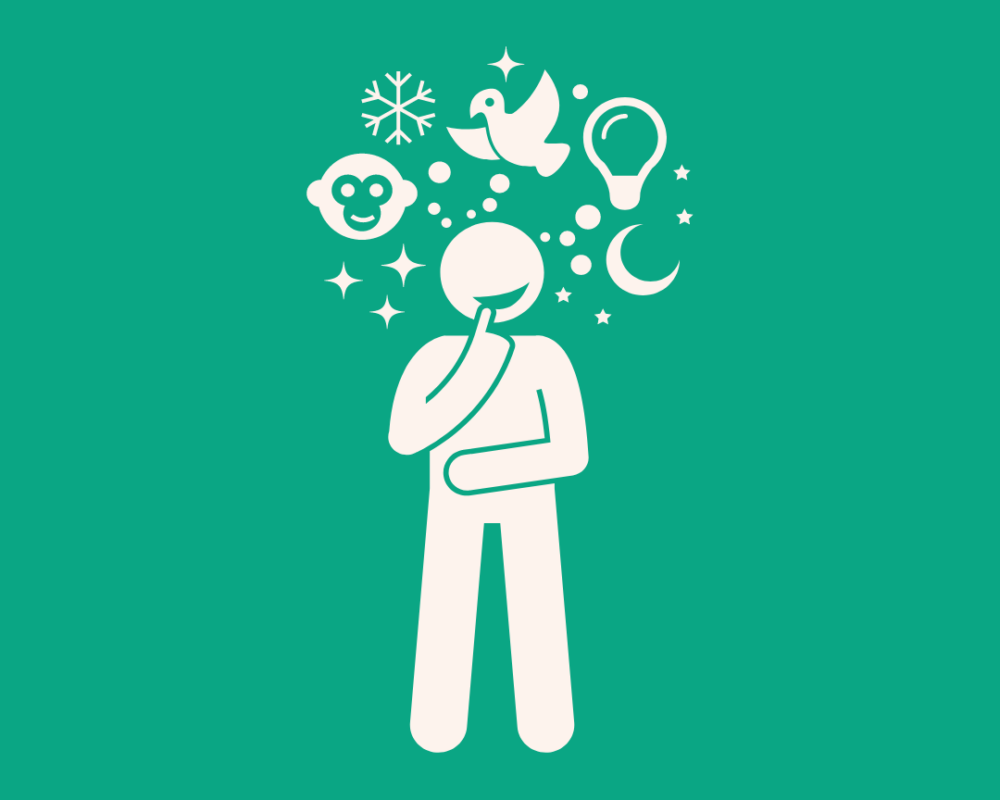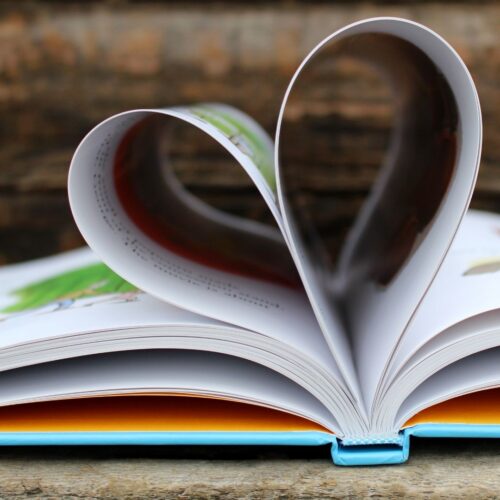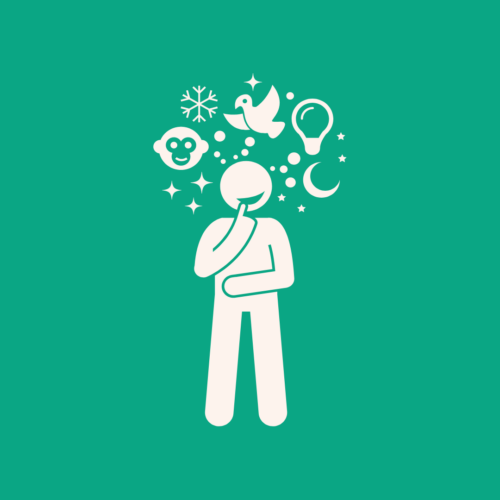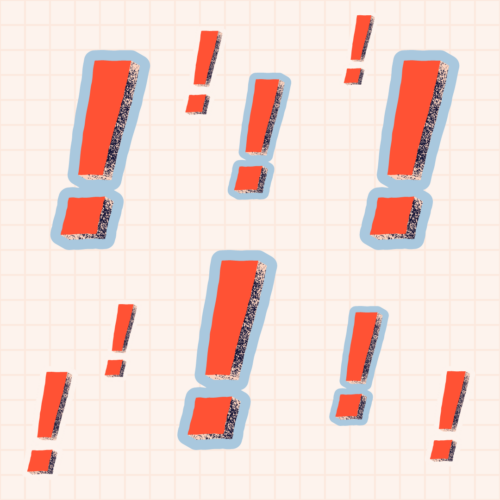How I’ve learned to work with my ADHD as an author
I’m an author with ADHD. Or Attention Deficit and Hyperactivity Disorder (Combined Type), to give it its full fancy name. Like many women, I was only diagnosed as an adult. ADHD often shows up differently in girls and women, and doesn’t look much like the stereotype of a noisy, hyperactive little boy, so it gets missed a lot.I love being an author, and when my ADHD brain is really working for me I genuinely think it gives me an advantage. But along with that comes the frustration of all the times when it seems out to sabotage me.
Obviously, writers without ADHD have times when they feel particularly scatter-brained, or overwhelmed, or filled with creative fire. But with ADHD the highs and lows can be ratcheted up to a level that’s totally beyond what is ‘normal’. I’ve heard it described like the difference between worry and anxiety, sadness and depression – there’s a resonance there, but it’s not the same. It’s not part of how your brain is wired, a rollercoaster of extremes that you have to ride each day and somehow learn to work with.

And I have learned to work with it, not perfectly by any means, but better than before. A lot of the progress has just been getting and accepting my ADHD diagnosis. Finally understanding why I find it so hard to control my butterfly brain, which always wants to fly off in a thousand different directions, chasing after something that’s caught its eye or its imagination. Not beating myself up about my ‘normal’ looking different to other people’s.
So here are the 3 ways that I’ve found ADHD to be both my best friend and my worst enemy as an author. It’s all just my personal experience, obviously, including how I try to harness the best and ride out the worst of it. But I hope it helps you understand ADHD a bit better.
1. Ideas

Best friend: Loads of creative ideas
One thing I really, really don’t struggle with is coming up with ideas. I’m not saying they’re all good ideas – in fact, I know some of them are total stinkers – but it’s like the idea tap is always running in my head. Sometimes one will randomly flood my brain and I’ll have to stop what I’m doing to get it out onto paper – partly because I can’t think of anything else until it’s been drained out, partly because I have the memory of a goldfish and any second that whole idea could go ‘poof’ and disappear for ever.
I don’t think I really appreciated this idea-generating ability until I heard other writers, ones whose work I absolutely love, talking about how hard they found it to come up with them. It had never even occurred to me that not all writers have the idea tap running in their heads, too. For book ideas, for characters, for scene settings, for whole chunks of disembodied text. My brain is so generous with these things, and the spontaneity of it all keeps writing feeling exciting.
Sometimes the idea tap is more of a trickle, especially if I’m feeling a bit tired or down. But even then, it usually only takes a little challenge or an interesting/inspiring little tidbit to set it off again. ADHD brains typically love to problem-solve and to learn new things, so it makes sense that both these things fire my brain right back up!
Worst enemy: Too many ideas!
Boooo, the flipside. Yep, too many ideas is probably one of my biggest problems as an author. That might sound ridiculous, like ‘Oh, I have too many diamonds in my tiara! What am I to do??’ But the deeply annoying thing about having an ADHD brain is that we want all the things but ‘all the things’ makes us so overwhelmed that we can’t function. It’s impossible to work on 20 different ideas at once, and trying to means you spin around on the spot, getting nowhere. It’s not only not productive, it’s a recipe for burning yourself out.
‘Well, why don’t you just work on one at a time and save the others for later?’ Absolutely. Makes perfect sense. Except to an ADHD brain. I consciously WANT to do that, and I’ve got much better at putting structures in place to help me do it. But I’m always struggling against a classic ADHD combination of impulsivity, difficulty with prioritising, and tendency to constantly second-guess myself and want to change my mind. This last one is interesting because it’s not really a symptom of ADHD. It’s a lack of confidence that comes from going undiagnosed for years, feeling like we’re not doing things ‘right’ compared to others, but not being sure why.
I’m lucky that I don’t have any real issue sticking to other people’s plans and deadlines – many ADHDers find this hard, too. When I’m actually signed up to write a book on deadline or do an author visit, for instance, I’m all good. But the bit where I’m on my own to do everything else an author does – from social media to updating my website – is tough. So I invent schedules and deadlines for everything, in my personal and author life, as if I have a boss and it’s not just me telling myself what to do. And I try to be realistic about what I can physically fit into a day, to try and help my frustrated brain understand that we are bound by the laws of time and space.
2. Interest-based nervous system

Best friend: When you’re interested
It was weird to read up about ADHD and realise that my brain literally has a different chemistry to what is considered ‘normal’ (neurotypical). The ADHD nervous system is interest-based, rather than importance-based. This means rather than switching on focus when we tell it something’s important, it activates focus when we’re interested in something.
Sometimes, if we’re really interested, that focus can actually go above and beyond what neurotypical people are usually able to achieve. It unlocks ‘hyperfocus’, the secret ADHD superpower. Hyperfocus is extreeeemely useful as an author. When I really get in the zone with writing, the world around me fades into silence and I have no concept of time passing. I can be there for hours on end, getting the words just as I want them, not wanting to tear myself away for a single second.
If you think that sounds like it could be unhealthy, you’re right. If I’m hyperfocused, I don’t want to sleep or go outside or even stop to drink water sometimes. I have to make myself do all those things. But it’s also a great feeling, and – as you can imagine – I get a lot of writing done when it kicks in. It’s not just writing either. I love learning and often hyperfocus my way into finding out all I can about a new subject that interests me. ADHD can be pretty useful for a non-fiction author!
Worst enemy: When you’re bored
Yeah, ADHD and boredom are not the best combo… Having an interest-based nervous system means that if you’re bored (or if something is too easy or overwhelming), it gets REALLY hard to focus. Obviously everyone would rather do interesting than boring tasks, but the difference is that at some point neurotypical people will typically manage to just kind of get on with it.
With ADHD, when I’m really not interested in something and I try to force myself to do it for an extended period of time, my body can’t handle it. Either I literally can’t sit still, or my eyelids get so heavy that whatever I do I can’t keep them open and just keep jerking awake. The upside of this very unhelpful ADHD boredom intolerance is that it’s a pretty great barometer for working out what kind of life I really want. If my body physically rejects something, it’s quite clearly not for me! So even if it means working harder or earning less than I could in certain jobs, I have to go with what holds my attention.
Luckily, I love being an author (and editor) and talking to people about books and writing, so it’s not much of a problem nowadays. Although I’ve been setting up a bunch of systems so I don’t have to do so much of the behind-the-scenes stuff that really drags. As an author, you’re also a small business – as unromantic as that may sound – and nobody escapes all of life’s boring bits!
3. Being different

Best friend: Thinking differently
I’d say my speciality as an author is finding a creative twist or fun, different way into a non-fiction subject, from art and science to wellbeing and climate activism. But just like the ‘idea tap’ I mentioned earlier on, it’s something that for a long time I just figured everyone could do.
I took for granted being able to hold a subject in my mind and visualise all sorts of different angles and approaches to it at once, then pick the ones that feel like they might work best as a way in to explore it. It feels so obvious and natural to do that I never thought of it being unusual – but over the years, a few people have made it clear that it is – in a nice way!
People with ADHD are really over-represented in creative and entrepreneurial professions, and I wonder if this tendency to think in a more scattered, less linear, way has something to do with it. Maybe it’s easier to break with convention because, through this different perspective, the ‘normal way’ is just one option of many. Who decided that meant it was the right way to do it? Obviously anyone can be creative and see new ways of doing things; ADHD isn’t a prerequisite for that. But as an author, this is one ADHD trait that I find very helpful!
Worst enemy: But am I too different?
Although, like any author, I sometimes find writing hard, I generally feel pretty comfortable with it. The page is a nice place to be. And I think part of that is because I can slow the world down and keep trying until I get things right. I can make mistakes and then delete them and try to find another, better way of expressing what I want to say. In life, you don’t often get that opportunity. Life with other people happens all around you, all at once, and it can feel like you have to move through it so quickly and get everything right first time.
That isn’t easy when the way you naturally are feels different to most people – too chatty, too ditzy, too enthusiastic, too daydreamy, too earnest, just ‘too much’. (Although I feel very lucky to write for kids, because I always feel totally happy chatting away with them!) Now I know that so many of my personality traits are classic ADHD markers, it sometimes makes me feel self-conscious. I don’t want to annoy or overwhelm people without even realising, but it’s also just too hard to keep up the mask of not being myself.
There’s no one ‘right’ way to be, obviously, and ‘too much’ is totally subjective. But, realistically, fully internalising that takes time. There is an undoubtedly public component of being an author, and I love that and the wonderful people it gives me the chance to talk to. But it means I have to try to be brave enough to show up not just in writing, but in real time, and not hound myself afterwards with all the mistakes I might have made for other people to see. Easier said than done, but I’m working on it!
I hope that was useful for you! If you want to hear more from me about kids’ books, writing and life as an author (with ADHD), you can sign up to my monthly(ish) email newsletter. I’d love for you to join us!




